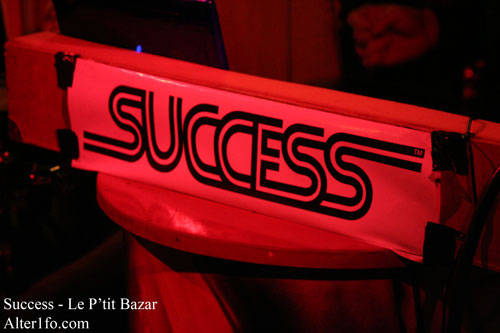As I’ve written before, the more experience I gain in my academic work, the more I realize I’m still learning. Even though I’ve reshaped my research trajectory through time, every time I publish (or I have a rejected manuscript), I learn something about my research, about where my work is taking me, and so on.
The truth is that in the past few weeks, I’ve sometimes been assaulted by impostor syndrome. In particular because the first two things I did right after coming back from two months of absolute illness (that kept me mostly bed-ridden) were to give talks at prestigious universities (Carnegie Mellon University, twice and Concordia University, once), have research meetings (University of Pittsburgh, twice) AND participate in the International Studies Association 2015 Conference. I have felt inadequate more than once, despite having received nothing but stellar feedback.
This frustrates me because I realize that I am a big proponent of redefining success in academia. I should feel happy that I was able to successfully give talks in prestigious universities and conferences and receive positive feedback on where my research is taking me, and what I’m studying. I should be able to just simply enjoy successfully having presented a paper at an international conference despite having been bedridden less than a month before. And yet, here I was, in New Orleans, surrounded by many of the smartest people in the international relations/international studies/comparative politics fields, still wondering “Am I good enough to be here?”
The irony is that when I shared my feelings of inadequacy with many senior scholars whose work I respect and who have published way more than I have, was that their unanimous response was “yes, I have failed too – I have had manuscripts, grant proposals, conference abstracts rejected. We ALL feel inadequate at some point“. The larger lesson was “inevitably, since nobody is perfect, you will fail at some point, and what you do afterwards is what will mark your pathway“.
And THAT was perhaps the best lesson I could learn in early 2015, as I move forward this year. That as long as I continue to do research that pushes my intellectual and analytical boundaries, as long as I’m determined to continue working towards my goals, even in the face of defeat, I’ll be ok.
Dealing with rejection is hard, particularly in the face of a couple of very successful years (I published more journal articles and book chapters in the past 12 months than I have in a long period of time, and I have a lot of publications forthcoming). I recently got two proposals for the American Political Science Association (APSA) conference rejected, and their rejection stung. But then again, I learned that many of my good friends ALSO got rejected, and having organized conferences myself, I know program chairs have a really hard time choosing panels and allocating spaces in the face of a myriad fantastic proposals.
I think that I need to keep reminding myself (for my benefit and that of my own students) that failure and rejection are part of academic life (and of life, in general). That as long as I continue to strive for balance and I continue to champion a more human, kinder, gentler academia, and as long as I continue working hard, publishing, mentoring students and doing my job to the best of my ability while making sure to NOT overwork myself, I will be ok (and so will they).



0 Responses
Stay in touch with the conversation, subscribe to the RSS feed for comments on this post.